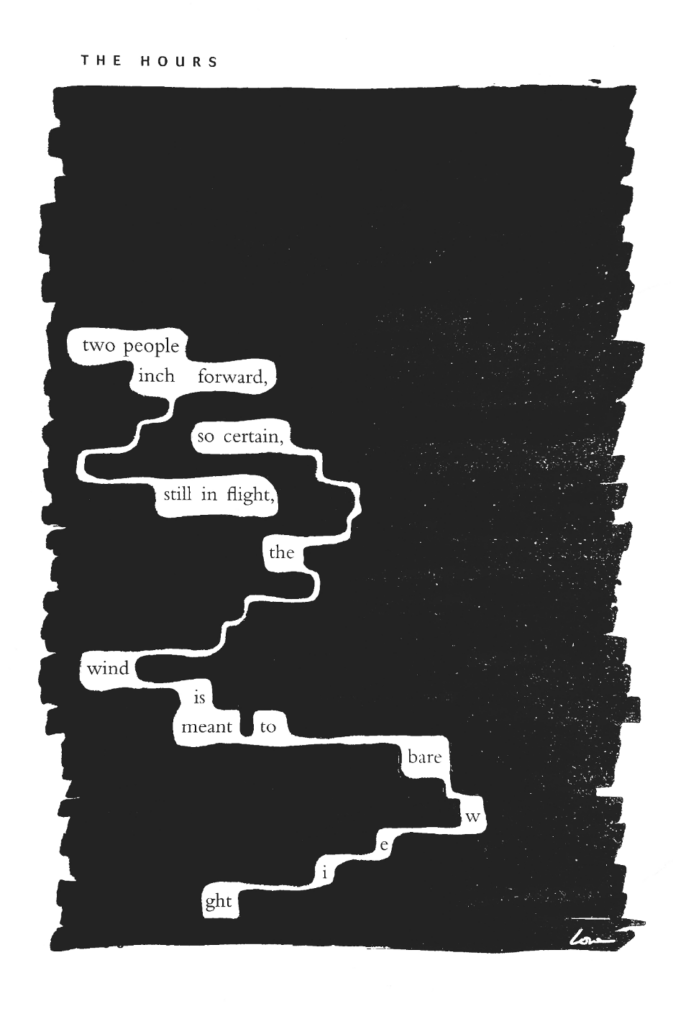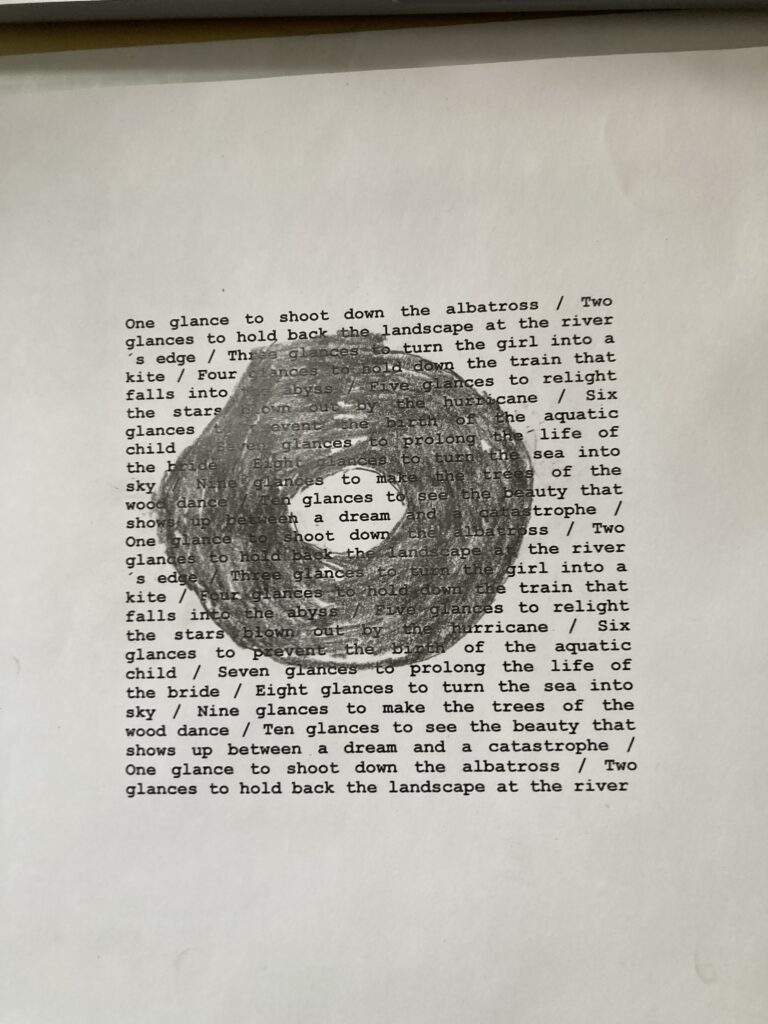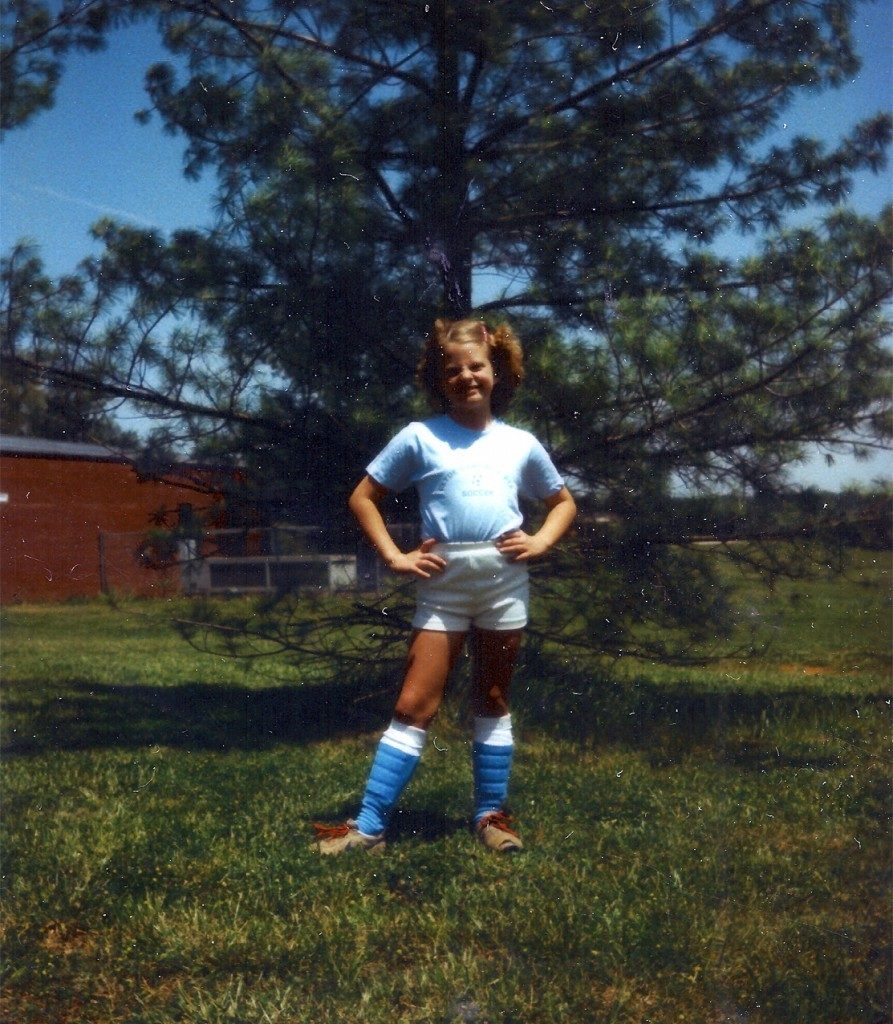5.25 miles
bottom of franklin and back
38 degrees
humidity: 90%
Even more wet today than yesterday. I was prepared for these conditions because I asked FWA, when he got back from walking Delia and before I went out for my run, what it was like outside and he said, like yesterday but wetter. Yep. Today I ran north instead of south. Puddles everywhere. Like yesterday, I tried to avoid them, and like yesterday, I was successful until I wasn’t and then I squished squished squished for the remainder of the run. Even though they were wet, my feet weren’t cold. In fact, I was warm — dripping sweat. Saw and greeted Daddy Long Legs twice. Hello!
For the first 4 miles, listened to the gorge. For the last mile, Sight Songs (originally titled “Eye Tunes” but that name was too confusing for Siri), on shuffle. The song I remember the most was “Breakfast in America” and the twisted return of the opening lyrics:
Take a look at my girlfriend
and
Don’t you look at my girlfriend
10 Things
- the surface of the river, closer up, under the I-94 bridge — glossy, looking like the surface of the ice skating rink at Longfellow on a warmer day
- the not-quite-frantic, unsettled? call of a bird under the franklin bridge — one note, repeated
- a wall of snow on a curb, white speckled with grayish-brown, subdued cinnamon sugar
- a biker speeding down the franklin hill
- another biker powering up it
- a small patch of bright pink graffiti on the underside of the franklin bridge
- misty, foggy, thick gray air
- an empty sky with an occasional bird flying through it
- voices all around — talking, laughing
- a vine on a neighbor’s fence with orange leaves

on walking
Discovered and read a beautiful essay about walking this morning: On Walking / Ira Sukrungruang.
1 — connected to place
Walking barefoot as a monk was a constant reminder of how we humans are always connected to the earth, bound by gravity, ever aware of the heft we carry—some of us more than others. It made me feel the mechanics of movement: muscles and tendons stretching and contracting, propelling the leg forward. It made me aware of the ground we walked on, the dirt and tar and tufts of grass in cracks, the unevenness of the pavement, the changes in terrain. This was spiritual walking, a bringing of awareness to our breath and our steps.
I am reminded of a line from my poem, “Girl Ghost Gorge,” it begins here, from the ground up: feet first, following
2 — an awareness of a changing climate
The environmental destruction we humans have enacted on this earth is obvious, but I didn’t take it in, I didn’t feel it, until I started walking.
Yes! Since starting to run above and beside and around and with the gorge (almost 9 full years and more than 8,500 miles), I have become more aware of the outside world and its shifts from season to season: when the leaves change and the acorns fall and the snow arrives (or doesn’t) and the floodplains are flooded and the sidewalks are cracked and the sun is covered in wildfire smoke and the bluff and a bench on its edge slowly slide into the gorge.
3 — eyes forward, ears open
After two weeks I came to look forward to taking the same path, seeing the same people. I was coming to understand devotion and repetition and humility. When a monk walks, his eyes should not look too far ahead, but neither should they be at his feet. They should be ten yards in front of him. And a monk’s ears should listen to the land waking up—the creaks and groans of the earth. The land is alive. It communicates. This earth, this world, is more than shape and matter.
Listening to the land speaking, open to how it communicates. Not staring, studying, dissecting it with our gaze.
4 — looking up and waving at a gargoyle
One afternoon in Exeter, walking to pick up Bodhi from school, I noticed how hunched I had become. It had been four months since our move, which meant I’d made that walk more than three hundred times by then, but only on this day did I notice a gargoyle staring down at me from above.
I stopped in the middle of the sidewalk to look up at it. Such an odd sensation to straighten and tilt my head back. It was a rare sunny day in Exeter. I shielded my eyes with my hand and felt like a flower willing itself through the ground. Then I waved at the gargoyle. I don’t know why. Cars whizzed by. People walked on both sides of the street—parents like me, getting their kids from school. The steeple of St. Leonard’s Church was in the distance, a beautiful marker of how far it was to Bodhi’s school. I headed toward it, my head high, learning a new way of being.
This ending paragraph and the looking up and waving at the gargoyle, reminds me of a favorite poem I read early on in this log (in a july 4th, 2019 entry I mention that I’ve been trying to write about this poem for years, but I can’t find an earlier entry with a mention of it, so I’m not sure when I first discovered it):
excerpt from Woman Waving to Trees / Dorothea Tanning
of these old trees. Raise your
heads, pals, look high,
you may see more than
you ever thought possible,
up where something might
be waving back, to tell her
she has seen the marvelous.
I love her use of pals — I’ve tried to (unsuccessfully) use it in my own poem. I often think of these lines whenever I stop to look up at a tree. Have I ever waved at one? I can’t remember, but probably not.
a year in poetry
Searching this my log for mentions of pals, I encountered a cento I wrote back in 2019, out of lines from all of the poems I gathered in 2019. I like it, and I want to do this again for 2025! I love centos and putting others’ words into conversation with each other!
Here’s the “finished” draft of the 2019 cento: I’m not Asking for Much — I’m hoping that I identified where the lines came from in some document because I’m not sure I could do it now! And here’s an earlier draft: Listen
Here’s where I begin: Poems Gathered in 2025
a word quarry game
While reading through my poems gathered in January of 2025, I came across an essay — We Could Just Gaga Our Grammar — and an idea for playing with words:
Find two or three random paragraphs from two sources and copy and paste the paragraphs into a word scrambler. From this jumble of found text, draft a poem. This activity is inspired by Dodie Bellamy’s Cunt Ups.
I’m thinking of a variation on this; instead of using a word scrambler, putting the paragraphs into my word quarry — grouping all the 1, 2, and 3 syllable words and then turning them into a new poem or chant or sentence based on rock (2-syllable/1-syllable words) river (3 1-syllable words) and air (1 3-syllable word) formations.
also: Looked up Cunt Ups and was reminded of William S. Burrough’s cut-ups. Found a book about it, and requested it. Now I’m thinking about cut ups and Lisa Olstein and then Henri Matisse and cut up forms and the cutting prow.
So many ideas! It is fun to let my mind wander again, after 6+ months of structured writing, first about open swim, then about haunting/being haunted at the gorge.
Back to Burroughs and cut ups. I watched this video, which I found in this essay: William S. Burroughs Cut Up Method
So good — when you cut into the present, the future leaks out. Also — the idea of the tape cut-ups and taking a phrase and scrambling the order until it means something else: I want to try that with my rock river air chants. And, the idea of taking different entries of this log — maybe entries from one day, different years — and cutting it up, or finding the same words, or picking a phrase from each entry . . .


